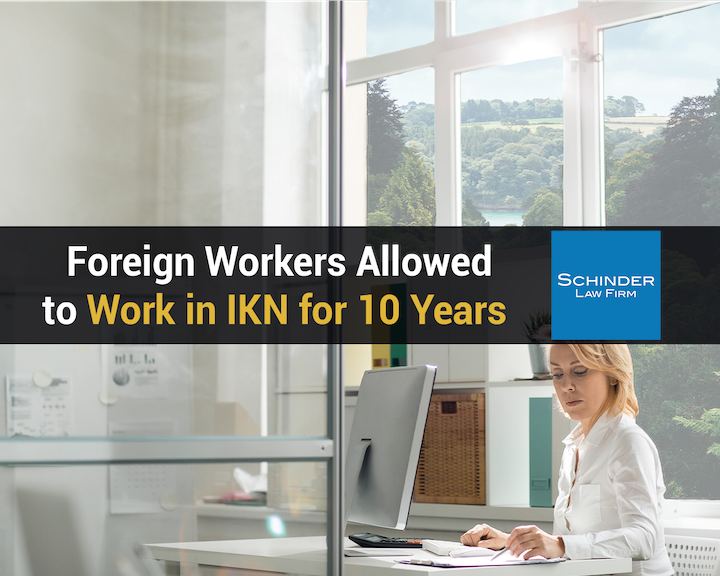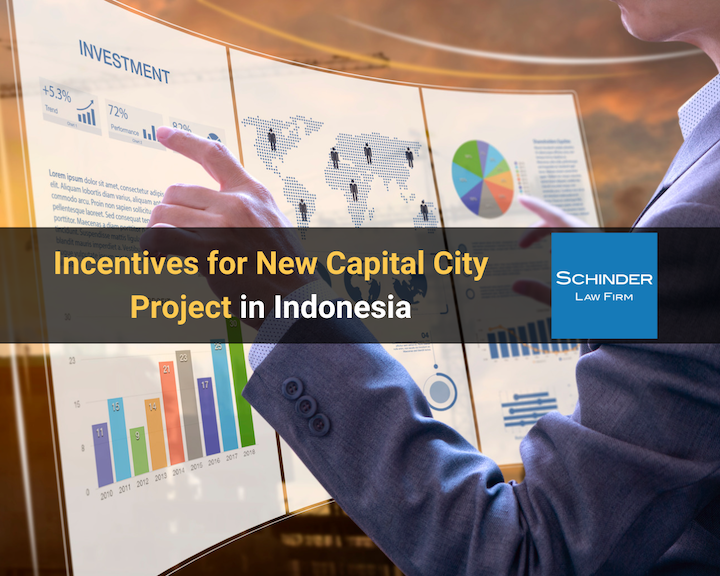Newsletter

The Mandatory Obligation of Developing Supporting Housing Infrastructure by the Industrial Area Developers
Aug 25, 2023
The Industrial Area plays an exceedingly strategic role as an industrial infrastructure in achieving spatial compatibility, industrial dispersion, and environmental sustainability. This is in accordance with the mandate of Article 106 of Law Number 3 of 2014 concerning Industry ("Law No.3/2014"), which imposes the obligation for new industries to be situated within the Industrial Area.

The Rise of Crypto in Indonesia: What Investors Need to Know
Aug 16, 2023
In recent years, the world has witnessed rapid developments in the financial sector, particularly with the emergence of cryptocurrencies. This phenomenon has profoundly transformed the global economic landscape and captured the attention of diverse stakeholders, ranging from professional investors to everyday internet users. Cryptocurrencies, such as Bitcoin, Ethereum, and numerous others, have become subjects of heated discussions and consistently dominate news and media dialogues.

Permissible Quantities of Commodities in Business Mining Permits in Indonesia
Aug 09, 2023
Indonesia, a nation composed of multiple islands blessed with a diverse array of natural resources, includes valuable mineral resources among its treasures. Within this category, mining commodities encompass both coal and various minerals. As outlined by the Geological Agency of the Ministry of Energy and Mineral Resources of Indonesia (ESDM), the country's mineral resources are divided into two main groups: metallic minerals and non-metallic minerals...

Reasons for Termination of Employment Without Severance Pay
Aug 03, 2023
Disputes within the realm of labor can lead to the termination of employment (PHK). Before carrying out the PHK, specific procedures must be adhered to. Termination of employment entails responsibilities for employers, including the provision of compensation to employees. However, it is essential to note that compensation does not always involve severance pay. The Regulation in Indonesia which regulate the Termination Of Employment...

Rights of Employees Engaged in Overtime in Indonesia
Jul 26, 2023
Overtime pertains to the laborious dedication of employees beyond their regular working hours. An employee is deemed to be engaged in overtime if they surpass 7 (seven) hours of work in a day and 40 (forty) hours in a single week, encompassing 6 (six) working days, or 8 (eight) hours per day and 40 (forty) hours in a week, comprising 5 (five) working days. Additionally, this includes work carried out during the working hours of weekly rest days and/or official holidays as designated by the government.

Foreign Workers Allowed to Work in IKN for 10 Years
Jul 05, 2023
The Indonesian government has recently issued Government Regulation No. 12 of 2023 concerning the Granting of Business Licenses, Business Ease, and Investment Facilities for Business Actors in the New Capital City of Nusantara ("GR 12/2023"), which came into effect on March 6, 2023. GR 12/2023 contains regulations regarding foreign workers who are permitted to work in the Capital City of Nusantara (Ibu Kota Nusantara or IKN). According to Article 22, business actors conducting activities in the IKN...

Nuclear Mining Areas in Indonesia
Jun 22, 2023
President Joko Widodo has recently issued Government Regulation No. 25 of 2023 concerning Mining Areas ("GR 25/2023"). This Government Regulation comes into effect on May 5, 2023. It governs various aspects of mining area, including permits for radioactive mineral mining known as Wilayah Izin Usaha Pertambangan or WIUP. As defined in Government Regulation No. 52 of 2022, radioactive minerals are minerals used as raw materials for nuclear fuel production, which are the primary products of nuclear mineral mining activities.

The Ban on The Export of Raw Mineral Material Bauxite Will Take Effect in June 2023 in Indonesia
Jun 07, 2023
President Joko Widodo announced that Indonesia will impose a bauxite export ban starting in June 2023 to promote domestic processing of its mineral resources. The ban is in line with Minister of Energy and Mineral Resources Regulation No. 17 of 2020 concerning the Third Amendment to Energy and Mineral Resources Regulation No. 25 of 2018 concerning Mineral and Coal Mining Business ("MEMRR 17/2020") and...

Divestment on Mining Shares in Indonesia
May 31, 2023
Business entities that hold Mining Business Permits (Izin Usaha Pertambangan or IUP) or Special Mining Business Permits (Izin Usaha Pertambangan Khusus or IUPK) and are in the stage of production operation, whose shares are owned by foreigners, are required to gradually divest their shares by 51% (fifty-one percent) to the Central Government, Regional Governments, State-Owned Enterprises (Badan Usaha Milik Negara or BUMN), Regional-Owned Enterprises (Badan Usaha Milik Daerah or BUMD), and/or...

Incentives for New Capital City Project in Indonesia
May 24, 2023
The Indonesian government has recently issued Government Regulation No.12 of 2023 concerning the Granting of Business Licenses, Business Ease, and Investment Facilities for Business Actors in the New Capital City of Nusantara ("GR 12/2023"), which provides various fiscal and non-fiscal incentives to businesses seeking to invest in Indonesia's new capital city, Nusantara. The regulation aims to provide greater...